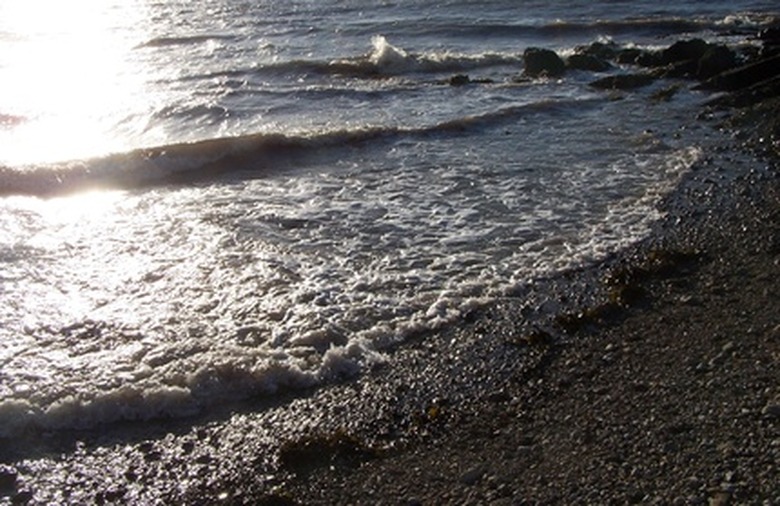Science Projects On Desalination
Desalination is the process by which salt water is made potable for drinking. This important procedure also removes other potentially harmful minerals from water. In the United States, more often than not there is a copious amount of available clean drinking water. In various parts of the world this couldn't be further from the truth. Advances in desalination and other water-related technologies are important for ensuring that everyone has clean water. There are multiple options for using the process of desalination in a science project.
Solar Power
One of the major requirements for the desalination process is energy. The large desalination plants of the world require a great deal of energy to extract the salt and minerals from salt water. One of the ways to remedy this output of energy is to use a renewable resource. Create your own solar-powered desalination plant for a bit under $100 to test if the technology is functional. Using mostly plastic bottles and straws you can create a device that will separate out water from the salt water. Test the amount of water collected, the temperatures of the salt water and the condensed fresh water and the conductivity of the salt water to determine your results.
Heating versus Cooling
One of the ways to desalinate water is to heat it until the water turns into steam and condenses without salt in another container. This is how the solar-powered experiment in the "Solar Power" section works. There is another method as well that involves freezing and thawing. Create two different homemade methods of desalinating water: one by using heat and the other by using freezing and thawing. Test the two methods against each other and determine which is the most effective. Include in the experiment an estimate of how much energy you had to put out for each method.
Concentration
Using your homemade desalination methods you can test to see how well the process works with different concentrations of salt. Use different samples of water including a purely salt water sample, a half salt water-half pure water sample and a sample of regular water for a control group. Perform the process on all three (or more) samples and determine how the concentration of salt affects the process. Make your assumptions as to why you believe this is the case.
Conductors
There are different materials you can place in the salt water that may speed up or slow down the desalination process. These conductors of energy can be tested to see if they make the process faster or slower, more effective or less effective. Try using a conductor like aluminum versus a regular conductor-free process. Place it in one of the samples with the salt water and test your results. You can use a solar method or an outside heating method for this project.
Cite This Article
MLA
Cohen, Bryan. "Science Projects On Desalination" sciencing.com, https://www.sciencing.com/science-projects-desalination-6386014/. 24 April 2017.
APA
Cohen, Bryan. (2017, April 24). Science Projects On Desalination. sciencing.com. Retrieved from https://www.sciencing.com/science-projects-desalination-6386014/
Chicago
Cohen, Bryan. Science Projects On Desalination last modified August 30, 2022. https://www.sciencing.com/science-projects-desalination-6386014/
